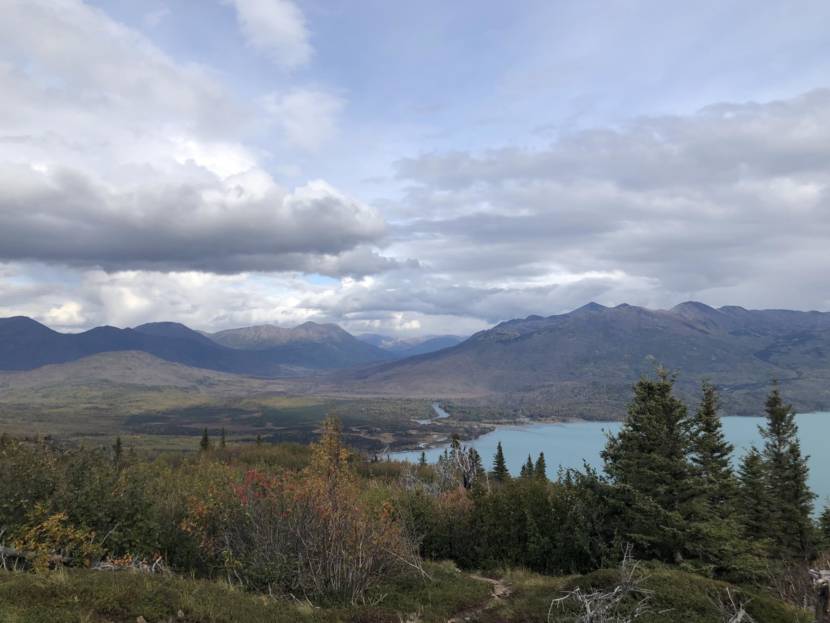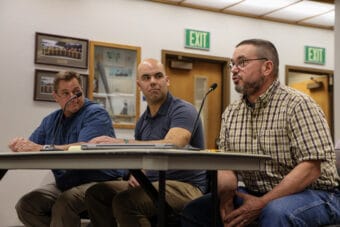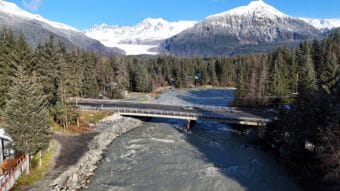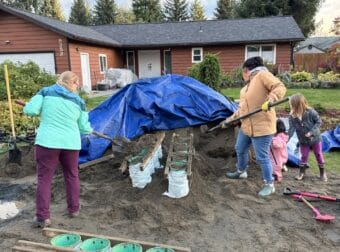
A rare double glacial dam release into the Kenai River is causing high water levels and flood risks on the Kenai Peninsula.
Two glaciers — the Snow and Skilak — are releasing large amounts of water at once, which is flowing downstream into the Kenai. The phenomenon is a glacial dam release, which can happen after part of a glacier melts, leaving behind a seasonal lake where ice used to be.
“And that is dammed up by the main glacier. Every couple years, when that gets full, it releases. It’s enough of what we call hydrostatic pressure that it can force its way under the glacier, and then it will all flow out within a couple of days,” said Kyle Van Peursem, a forecaster at the Alaska Pacific River Forecast Center in Anchorage.
Usually, these two glacial lakes release every two or three years, but two at the same time is unprecedented.
“It’s pretty rare that those go in the same year, even more rare that they go within a few days of each other,” he said.
It’s also unexpected, because the Snow Glacier Lake also released last year. Van Peursem said there’s no good explanation for why that’s occurring.
He said the Snow Glacier lake began releasing water Wednesday into the Snow River and down to Kenai Lake. Skilak Glacier Lake started releasing on Thursday, sending water into Skilak Lake and ultimately down the Kenai River.
The low-lying Kenai Keys area in eastern Sterling is at the biggest risk for flooding.
“They’re already seeing some pretty high water in the Kenai Keys. Our observer there is giving us observations, saying the canals in the Keys are completely full, and the roads are about to be inundated overtop by water,” he said.
A glacial dam release is the same type of event that caused major flooding and damage in Juneau in early August. But Van Peursem says the Juneau release was a 1,000 year event — this double release on the Kenai may be unprecedented, but it’s not expected to bring that level of destruction.
Van Peursem said the peak threat will be tomorrow, but a warning remains in place through next weekend. He advised boaters not to create a wake through those high water areas, where it would cause even worse flooding for riverside residents.


